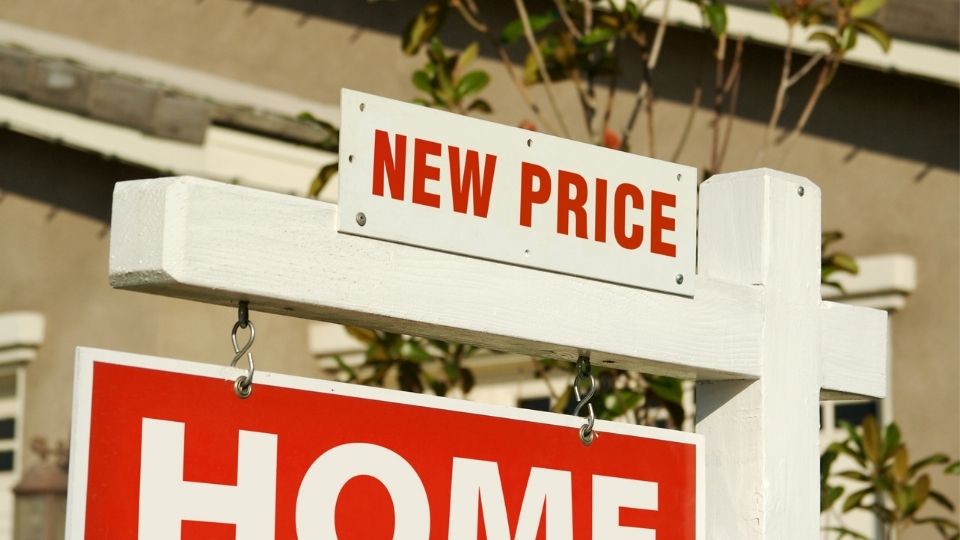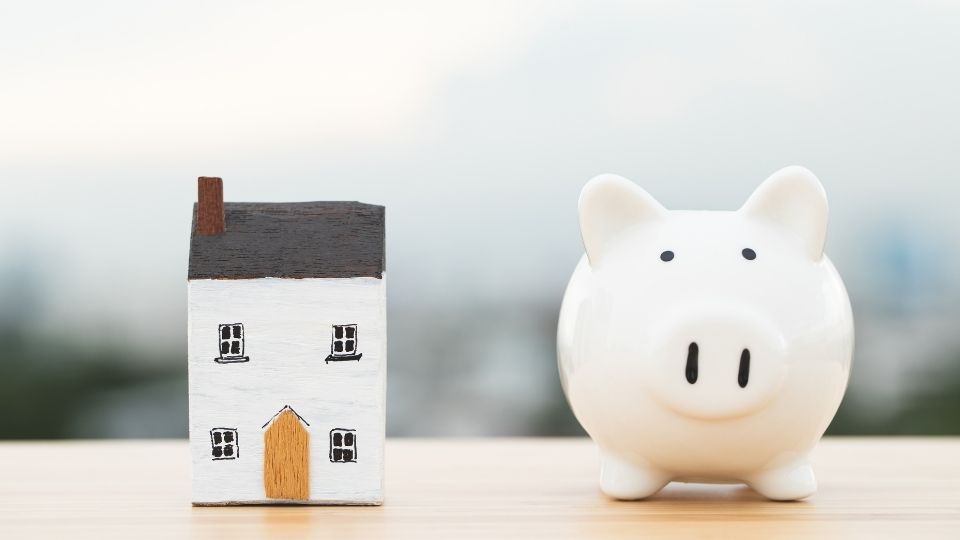How to flip a house – renovate without paying a cent

Flipping houses NZ is part of a movement that has been occurring worldwide for many years now. Often portrayed as an “easy” way to make money, there are many issues to be aware of and factors to consider. In this article, we will look at how to flip a house without paying a cent for renovations. When you consider renovations can add tens of thousands of dollars to the value of a property, it is a handy option!
What is a house flipper?
Flipping houses NZ is seen by many as simply buying a property and selling for a profit. While this is the general idea, the true definition of house flipping is the acquisition of a house and subsequent sale between 90 days and six months. While many people may assume that anywhere between 90 days and six months is a relatively long time, the property market often moves very slowly!
Average property prices in New Zealand
It is essential to research the New Zealand property market if you’re looking to become a house flipper. For example, according to REINZ (the Real Estate Institute of New Zealand), in January 2022, the average home in New Zealand was worth:-
• $880,000, an annual increase of 20.5%
• Excluding Auckland – $750,000, an annual increase of 24.6%
You will see many official statistics stripping out the Auckland property market, where the average property now changes hands for around $1.2 million, an annual increase of 20.6%. You will also notice some extreme property price increases of late when looking at the overall market and stripping out Auckland. As a house flipper, it is essential to consider whether the market may cool in the short term as interest rates start to tick higher.
What is the average house-flipper profit?
Simple, as much as possible! However, joking aside, the average house flipper tends to target a 15% profit after considering all costs. Even if we look at property prices excluding Auckland, 15% of $750,000 equates to a profit of $112,500. On the average property price, this equates to $132,000 and $180,000 on the average Auckland property price. So while there may be a temptation to look at smaller cash returns, it is crucial to appreciate the risks of buying a house to flip.
Finding the right property
In theory, if you buy any house at the “right price”, there may be potential to become a house flipper and make a significant turn. However, when looking to find the right property, there are many issues to take into consideration, such as:-

Location
As they say, location, location, location. One of the critical factors to consider when buying a property to flip is the liquidity of the local market and demand. No house flipper wants to be exposed to the property market for more than six months. Consequently, you will notice that many will tend to focus on relatively liquid markets, i.e. there is a constant flow of buyers and sellers.
It is also important to note that not all house flips will make the target 15% – indeed, some may incur a loss. As with any investment, you should also have an exit route in mind if the deal is not going to plan. Consequently, those looking to flip properties in relatively illiquid/low demand property markets may struggle to turn a problematic investment back into cash. If there is no cash in the bank, or you are maxed out on your mortgage, this could curtail your future plans!
Price
The price you pay for a property will ultimately dictate your potential profit. If you value a property at X dollars and it is listed at Y dollars, it is essential to stick to your principles with a certain degree of flexibility. It would help if you also looked at the condition of the property when compared to neighbouring homes to get an idea of the potential uplift after renovations. Do not pay over the odds for a home!
From time to time, you will come across properties that have been on the market for some time, potentially ripe for a cash buyer. Unfortunately, the seller may be experiencing financial difficulties or changes in their personal life and looking to sell quickly. If the property has been on the market for some time, it may be an idea to submit a relatively lowball figure. If you already have funds available, whether, through savings or a mortgage, a relatively quick settlement could be attractive for the seller.
Average price
As we alluded to above, it is essential to appreciate the local area and the average cost of property. Therefore, to get an idea of the potential uplift, you need to consider the property’s condition, renovations required, and the average property price in the street and local neighbourhood.
Many experts would argue that chasing property prices after a year that has seen an increase of more than 20% is dangerous. However, if the gap between the purchase price, the cost of renovations, and average property prices in the street are sufficient, this will give you a degree of headroom – a safety net.
Rental yields
While New Zealand has a healthy housing market, there will always be a mix of homebuyers and renters. This may be because of a person’s personal situation, employment status or a reluctance to commit to a particular area in the longer term. Many people fail to appreciate that rental yields offer a degree of support to housing markets. Consequently, while you may not have even considered a purchase and rent scenario, local rental yields will give you an idea of local demand.
Cost of finance
When flipping houses in NZ, it is crucial to appreciate the cost of finance and the short to medium-term direction of interest rates. Even though a house flipper will not plan to hold a property beyond a maximum of six months, they may be forced to if they can’t achieve their target price. It is also essential to appreciate that the cost of finance will ultimately impact the demand for property. If interest rates are high, some people may fail the mortgage affordability test, which could reduce the number of potential buyers. It is always good to have competition amongst buyers when selling a property!

Funding a property purchase
The more successful house flippers will already have mortgage finance arranged before making an offer for a house. This ensures that they are ready to move as soon as the price is agreed, which can often play into their hands if a seller is looking for a prompt settlement. There are various ways to finance a property purchase, such as:-
• Traditional mortgage
• Remortgage
• Lifetime mortgage
• Home reversion scheme
• Family loan
If you are considering an investment in the housing market, it is vital to take professional financial advice before committing yourself.
Renovating a property with no upfront payments
Now we move onto an exciting subject, ways in which you can fund the renovation of a property with no upfront payments. Some readers may take a step back and wonder how flipping houses NZ can be achieved when renovating a property with no upfront payments. Being creative is the key!
In theory, there are several ways in which you can fund property renovations with no upfront payments:-
Interest-free credit card payments
If we assume that a property renovation will cost you around $20,000, you may have funding available on your credit cards with a 30-day interest-free period. As is customary, you make purchases at the start of the month, and everything is settled at the end of the month. Funds that remain on your card will attract interest, something we will look to avoid as a house flipper!
This is where it gets interesting. Many credit card offers will allow you to transfer balances onto a new card with six months of interest-free credit. So, overnight you have gone from 30 days of interest-free credit on your existing credit card to a six-month interest-free arrangement on a new credit card. The idea is simple, within the six months, you would aim to sell the property, bank the profit and pay off the cost of renovations. Interest-free!
Friends and family
You may be in the enviable position of having friends and family available to loan you funds to cover the cost of renovations. In some cases, they may request a relatively modest interest rate, but this is often rolled up and repaid with the capital. As there will only be one full and final payment at the end, including capital and interest, this is extremely good for cash flow.
Investors
If you can locate a property with significant potential, there are investors out there looking to fund such transactions in exchange for a share of the profits. They will lend you the funds required to cover the cost of renovations in exchange for repayment of capital and a percentage of profits on the house sale. While this will ultimately reduce your overall gains, it is an interesting way to fund renovations without any upfront payment.

Renovation loan
Here at Crester Credit, we offer renovation loans for those looking to update their existing homes and those looking at flipping property. Additionally, there may be the possibility of using existing assets as collateral, reducing our risk and, consequently, the interest rate charged. While traditional renovation loans will require minimum monthly repayment, this is a viable alternative for those not able to secure interest-free refinance.
Bridging finance
If you have acquired a property you are looking to flip, it may be an option to secure bridging finance to fund renovations until the property is sold. The idea is simple; the cost of renovations and finance charges will be repaid upon sale of the property. While finance charges will eat into your potential profits, assuming you have bought at the right price and carried out the “correct” renovations, there is still potential for significant gains. We are happy to discuss bridging finance at Crester Credit.
Seeking financial advice
If you are looking to invest in property with the idea of flipping for a short-term gain, it is essential to take financial advice. Here at Crester Credit, we take our responsibilities extremely seriously and will only make finance available where it is affordable for the client. However, it is also crucial to be aware of the potential risks and rewards of house flipping. While we have mentioned the subject of exit strategies in passing, there are alternatives to a sale (even if not the preferred option). Therefore, it is vital to have a backup plan!
Conclusion
When considering flipping houses NZ, you need to do your local, national and even international research. Are there any factors you need to be aware of before you commit yourself to what could be a significant investment? For example, what is the outlook for interest rates? Is the property market overheated? What is the cost of property in the neighbourhood?
While some may disagree, there is always the potential to flip houses if you buy them at the right price and add value with the correct renovations. However, tread carefully!
Disclaimer:- This article is not to be taken as financial advice. Please carry out your own research, don’t enter agreements without understanding the implications and only borrow what you can afford to repay. It is also essential to take professional financial advice to ensure that you make the correct decisions for your financial situation.
by Ash Horton
March 27, 2022
Ash is a professional content writer with extensive experience in business development in the financial services. Ash has founded businesses from the age of 19, including franchising ventures, and working alongside some of the largest retailers in the world.







